Some of the most effective mosquito solutions are cheaper, smarter, and way better for the planet.

Most people panic and reach for chemical sprays the second mosquitoes show up. But those same sprays do not just wipe out the bloodsuckers. They hit bees, butterflies, dragonflies, and every single creature trying to keep your yard functional. The backyard becomes a ghost town. And sure, maybe you are not getting bitten, but now nothing is pollinating your tomatoes either.
It does not have to be that way. You can cut mosquitoes down hard without killing off everything else that makes your yard worth stepping into. These hacks do not smell weird. They will not wreck your pets. And they actually work better long term because they are not just a one time spray and pray situation. If you have ten minutes, a bucket, or a candle, you have options that mosquitoes seriously hate.
1. A fermenting bucket trick will attract mosquitoes so you can trap them at scale.
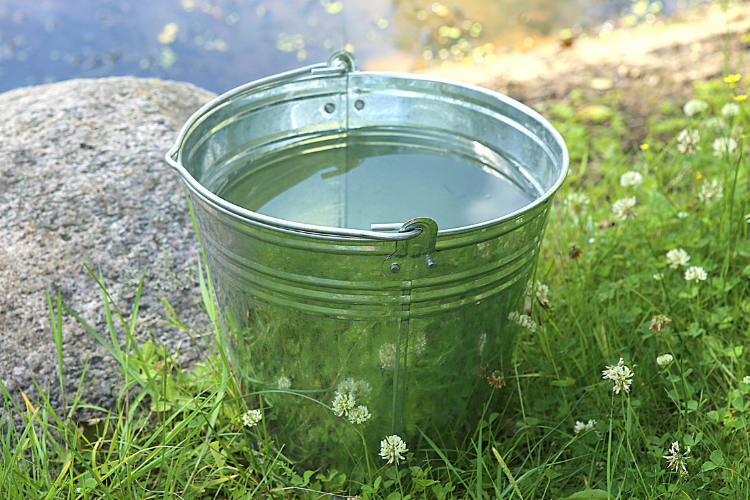
This method is wildly underrated, and the science behind it is genius, according to the expets at the Charlotte Urban Institute. Mosquitoes are drawn to carbon dioxide. It tells them a living thing is nearby and ready to be bitten. You can use that to your advantage by creating a mini mosquito magnet they cannot escape from. Start with a five gallon bucket and fill it with water, a handful of grass clippings or leaves, and scraps like apple cores or old lemon rinds. Let it sit in the sun for about a week. It will start fermenting and releasing carbon dioxide.
Once it gets that gassy swampy smell going, drop in a mosquito dunk. They sell them at hardware stores and on Amazon. These contain a bacteria called Bacillus thuringiensis israelensis that kills mosquito larvae but leaves everything else alone. Cover the top of the bucket with chicken wire or mesh. That lets mosquitoes in to lay eggs but keeps animals and other insects out.
Then stash it in a shady corner of your yard. What you have made is basically a biological decoy that siphons off mosquito breeding into one spot and wipes them out before they become a problem. You are not spraying. You are outsmarting.
2. Coffee grounds in standing water will kill larvae before they hatch.
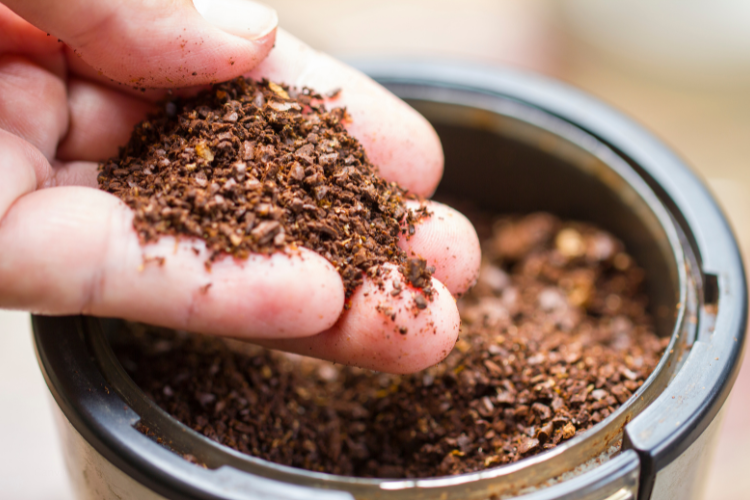
This one sounds too simple to matter, but it is ridiculously effective. If you have got birdbaths, clogged drains, or that one potted plant saucer that never seems to dry out, those are mosquito breeding headquarters. All it takes is a few pinches of used coffee grounds to make those spots toxic to larvae, as stated by Lauren David at Southern Living.
The grounds create a film on the water’s surface that messes with oxygen levels. Mosquito larvae cannot breathe through their siphon tubes. They suffocate before they ever sprout wings. Plus, the water ends up smelling just unpleasant enough to repel any new females from laying there.
And no, it will not hurt your plants. In fact, coffee grounds add nitrogen and other nutrients. So while you are cutting off the mosquito supply, your soil is getting better at the same time. It is the kind of two for one solution mosquitoes never see coming.
3. Lemon balm is the chaotic neutral garden plant mosquitoes hate.
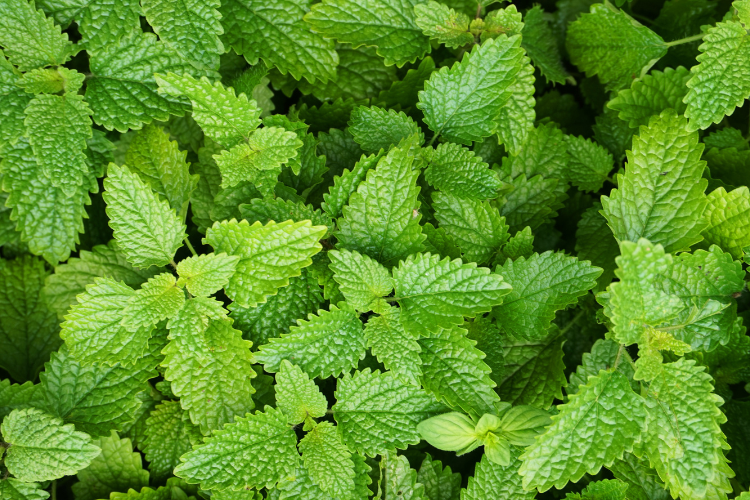
You want a plant that smells nice to you but basically throws mosquitoes into fight or flight. Lemon balm is that plant, as stated by Alicia Racelis, PhD at WebMD. It is part of the mint family, so it grows like it is trying to take over the planet. But unlike mint, which has a cleaner scent, lemon balm smells sharp, citrusy, and aggressive, at least to mosquitoes. They hate it.
Tuck it near doorways, patios, or wherever people tend to sit. Just rubbing the leaves between your fingers releases oils that drive mosquitoes away. You can crush the leaves and rub them on your skin for a temporary shield, or even steep them into a spray if you are feeling extra.
The best part is how low maintenance it is. It does not ask for anything. It grows in sad soil. It survives heatwaves. And it keeps putting out that mosquito repelling energy for months. Bonus, it attracts bees and butterflies who want nothing to do with your blood. Just your flowers.
4. Citronella candles are still around for a reason and they actually help.
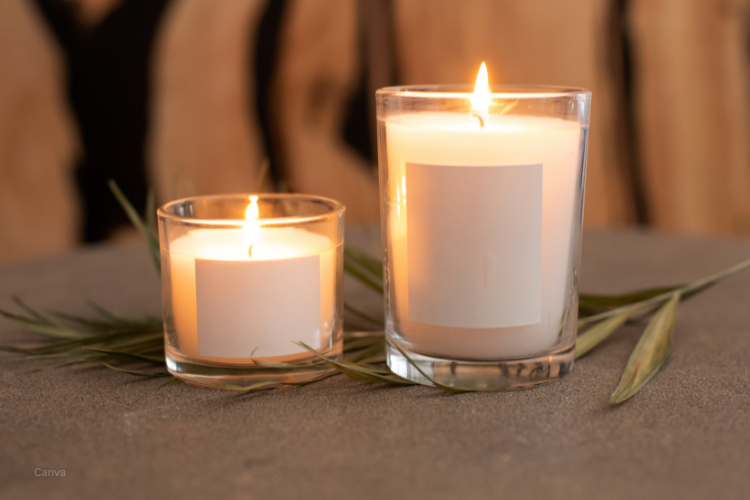
This one gets dragged a lot for being basic, but citronella works, as stated by Benjamin Whiteacre at Better Homes & Gardens. It is not some miracle shield, but when used right, it lowers the mosquito count in your personal space in a noticeable way. It comes from a type of lemongrass that naturally emits compounds mosquitoes avoid. The smell blocks the signals they use to find you.
The trick is keeping it close. One candle in the middle of a big yard is useless. A few candles spread around chairs, tables, or windows where people hang out makes a serious difference. Mosquitoes need scent trails to find their target. If citronella confuses that signal, they bounce.
You can also get citronella oil for diffusers or sprays. Just make sure it is the real thing and not some weak scented knockoff. The stronger the smell, the more mosquitoes check out early.
5. Box fans on your patio do way more than cool the air.
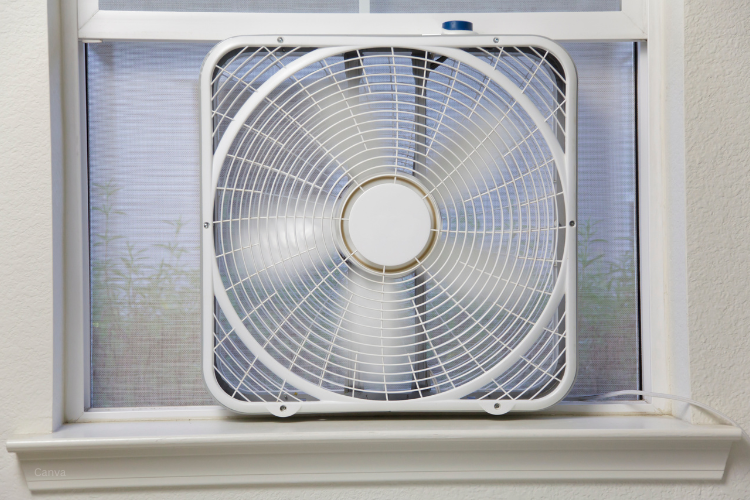
This is the backyard cheat code no one thinks about. Mosquitoes are weak flyers. Like, embarrassingly bad. A box fan on medium speed can create a breeze they physically cannot fly through. Put one near your seating area and suddenly you are surrounded by mosquito turbulence they do not want to deal with.
Even better, the breeze disperses your scent. Mosquitoes track humans through heat and breath. If your scent is getting blown in every direction, they cannot follow it. They waste their time zigzagging through wind instead of finding your ankle.
You can double this up with citronella or lemon balm nearby and create a tiny force field of nope that they will not push through. You are not just staying cool. You are taking away their entire strategy.
6. Spray fog kills more than mosquitoes and leaves long term damage behind.

People think a quick backyard spray is no big deal. The mosquito guy rolls in, coats everything in that weird chemical mist, and suddenly you can host your barbecue in peace. What they forget is that this stuff does not just vanish after the bugs are gone. It lingers in the grass, on flowers, and in the air. It sticks to the fur of pets. It gets picked up by bees. And it does not know the difference between a nuisance and a pollinator.
The biggest problem is that beneficial insects get wiped out way faster than mosquitoes. Dragonflies, ladybugs, bees, lacewings, and butterflies drop in numbers first. Mosquitoes repopulate fast, but everything else struggles to bounce back. You end up with a silent yard that looks healthy but has no balance. That is not pest control. That is a full system collapse.
And the worst part is it creates a rebound effect. Fewer predators means more mosquitoes over time. So you spray again. And again. Until your backyard becomes dependent on chemical fog just to function at all.
7. Cedar mulch is underrated and mosquitoes avoid it hard.
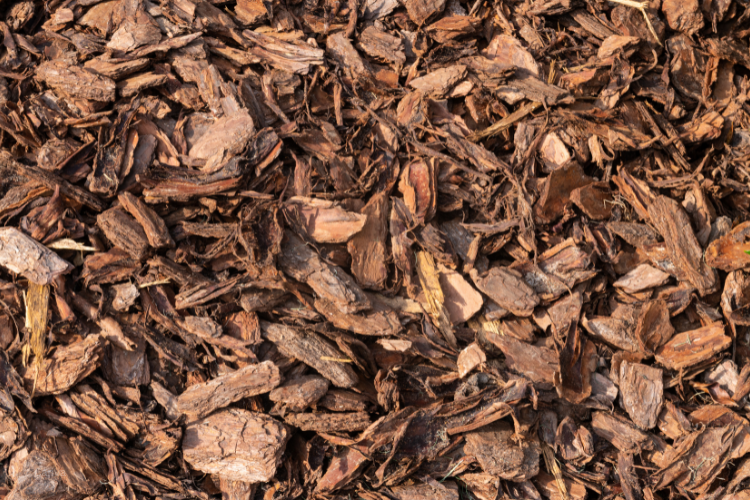
Cedar does more than just smell good. It releases natural oils into the air and soil that completely disrupt how mosquitoes and other pests function. The scent confuses their sense of direction and clogs the chemical receptors they use to track humans and animals. You are not killing them, you are making it impossible for them to do what they came to do.
Lay down cedar mulch in high traffic zones, especially anywhere with damp soil. Around the edges of your patio, near the dog’s favorite shady spot, under swings or hammocks, those are perfect places to start. You are building a quiet wall they will not cross.
And mosquitoes are not the only ones that get the message. Cedar repels fleas, ticks, and some species of ants too. So now you have a low effort ground cover that also smells amazing and makes your yard less appealing to every creepy crawler on the list. It is not loud. It just works.
8. Keeping gutters and drains clear shuts down breeding zones fast.
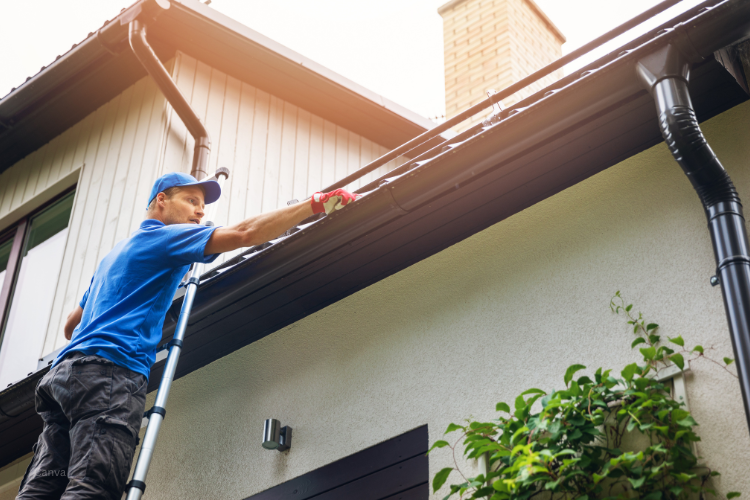
This might be the least exciting solution, but it is one of the most effective ways to control mosquitoes at the source. It does not matter how many candles you burn or plants you grow if your gutters are clogged and full of water. Mosquitoes do not need a pond. They only need a few tablespoons of standing water to lay eggs.
Dirty gutters are one of the biggest hidden breeding zones in most backyards. The water sits there, blocked by leaves and debris, and becomes a perfect nursery. The same thing happens in storm drains, forgotten pots, and the saucer under that one old planter no one ever moves. Even that busted wheelbarrow behind the shed can become a mosquito hotel if rainwater collects there.
Walk your yard after a storm. Look for puddles, hidden dips, open containers, or anything that holds water for more than three days. Drain it. Dump it. Clear it out. This is not about looking clean. It is about shutting down their life cycle before it gets anywhere near your ankles.
9. Lemons stuffed with cloves double as mosquito repellents and fly blockers.
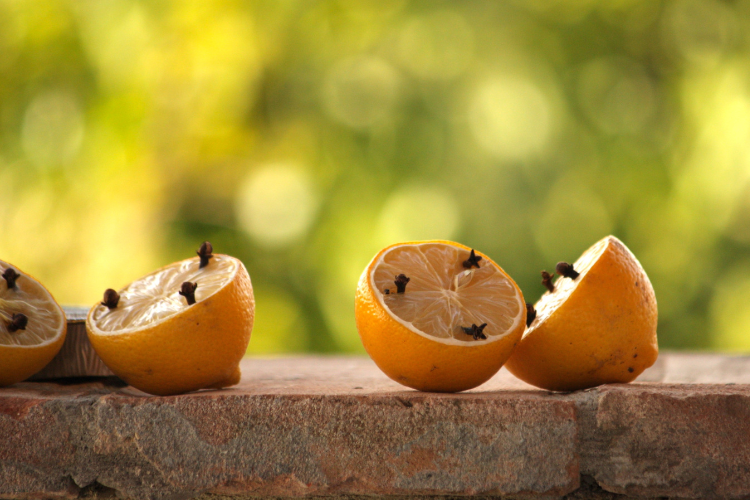
This one looks like a Pinterest hack, but it works way better than people expect. Take a fresh lemon, cut it in half, and press a handful of whole cloves right into the pulp. Then leave the lemon halves out on tables, windowsills, or near doorways where you usually get swarmed. The scent combo is weirdly powerful. Mosquitoes cannot stand it. And flies dip the second they get a whiff.
The citrus oil from the lemon messes with how mosquitoes track you through carbon dioxide. The clove adds a strong spice note that messes with their ability to process scent entirely. Flies also have no patience for either smell. So while it looks like a cute little table decoration, it is actually working overtime to make your space miserable for every flying freeloader.
You can refresh the lemons every few days or squeeze them slightly to reactivate the oils. It is low effort, high impact, and actually makes your space smell decent while doing the work. You are not just repelling pests. You are low key flexing on them.
10. Plant based lotions make your skin smell invisible without using deet.

You do not need chemical sprays to keep mosquitoes from biting. Some of the most effective solutions are just skincare products with better ingredients. Lotions made with oils like peppermint, geranium, lemon eucalyptus, clove, and lavender can mask your scent in a way that completely throws mosquitoes off. They are still trying to find you, but your body no longer smells like a clear target.
These are not bug sprays pretending to be lotion. They are actual moisturizers that happen to mess with how mosquitoes track you through carbon dioxide and heat. Some versions are light and clean, others a little more herbal. Murphy’s Naturals, Kinfield, and a few indie brands make solid options that do not feel sticky or strong. You can also make your own using essential oils and a base like coconut or jojoba oil. It feels like skincare but works like armor.
11. Plug in devices and portable repellers are worth testing when the buzz gets intense.
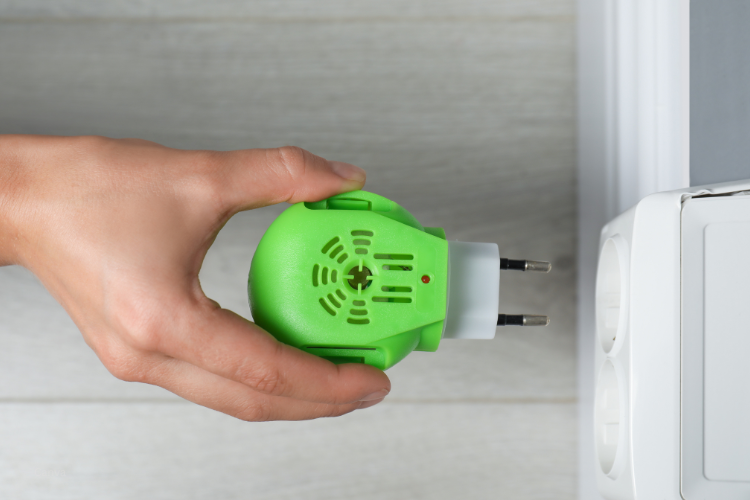
If you want to add another layer of defense without spraying anything, try ultrasonic or vibrating mosquito repellers. They are small, quiet, and low effort. Some plug into outlets and others run on batteries. They work by giving off subtle sound waves or pulses that confuse the mosquito’s ability to navigate and detect you. You might not hear anything, but to them it is like background noise they cannot process.
The science is not unanimous, but in real world use, people report fewer bites and less buzzing around their personal space. These are not replacements for repellents, but they are good backup. Use them near where you sit, sleep, or eat. A lot of portable versions clip to chairs, bags, or strollers. You are not shocking them or zapping them. You are just making your entire vibe feel too glitchy to bother with. And sometimes that is exactly the right move.
